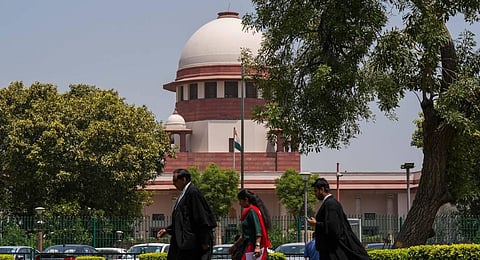

NEW DELHI: The Supreme Court on Thursday asked the Centre to find ways to accord basic social rights to same-sex couples, like opening joint bank accounts or nominating a partner in insurance policies for those in cohabitory relationships.
It, however, took the Centre’s point that granting legal recognition to same-sex marriage is for Parliament to decide. A five-judge bench headed by Chief Justice of India D Y Chandrachud asked the Centre to come back on May 3 with its response on the social benefits that can be granted to same-sex couples even without recognising their marital status legally.
Referring to the old Privy Council principle according to which long cohabitation was itself is a presumption of marriage, the CJI said the recognition of the “right of cohabitation of same-sex couple” by the state as a fundamental right would also result in imposition of corresponding duty on the state to legally recognise social incidents of cohabitation.
“We take your point that if the court would go into the legislative arena, we’ll be legislating and this is your (Centre’s remit) and it is for Parliament. But what will the government do to ensure that these cohabitory relationships are recognised in terms of security, social welfare,” the CJI said.
“Maybe we can act as facilitators. The relationship of the court with the government is not adversarial. We may not have the model within us and it may not be appropriate for us to devise that model. But we can certainly tell the government that look our law now has gone so far recognising such relationships,” he said.
The bench asked the Centre to offer solutions after Solicitor General Tushar Mehta argued that although the right to love, cohabit, project sexual orientation and choose a partner was a fundamental right, seeking recognition of that relationship as marriage was not a fundamental right.
Question of incest
Laying emphasis on the fact that an individual’s sexual orientation cannot be exercised in all aspects of marriage, including degrees of prohibited relationships, the CJI said it would be very far-fetched for someone to even argue that sexual orientation was so absolute as to allow incest